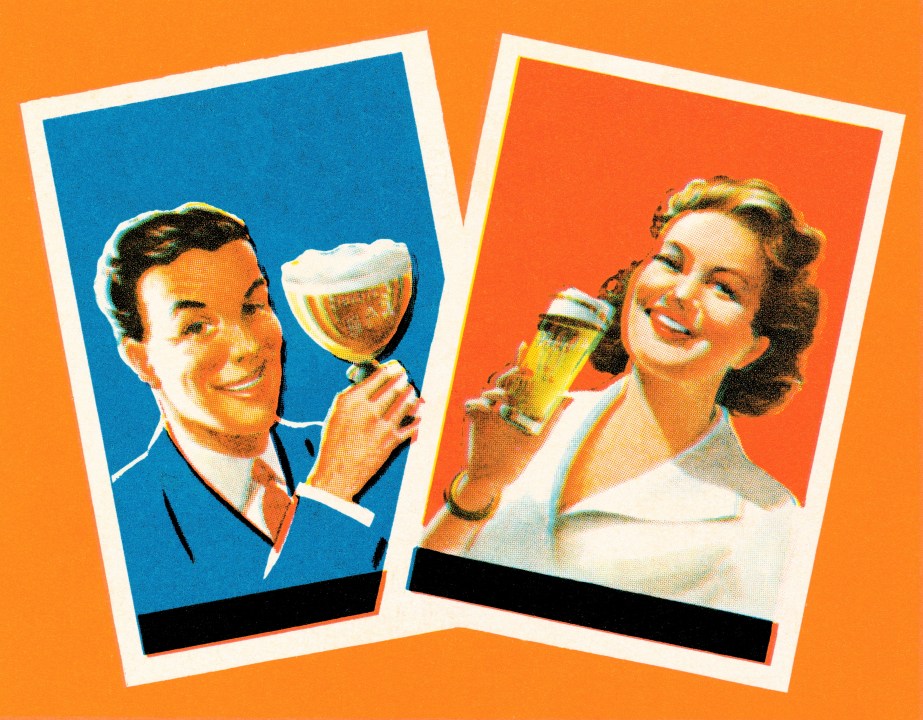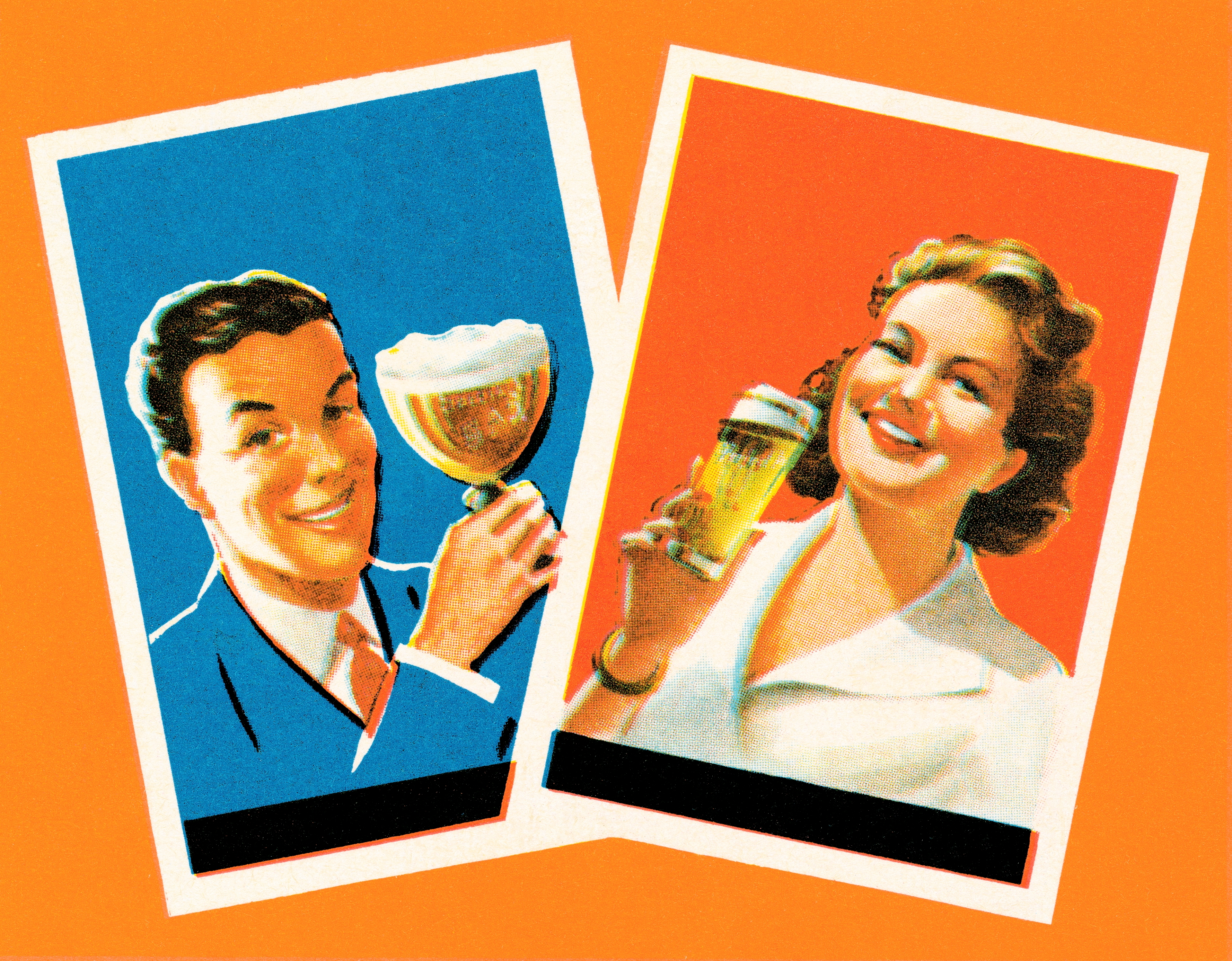To adapt Pastor Martin Niemoller’s famous dictum on the failure of the Germans to tackle Hitler, ‘First they came for the smokers and I did not speak out because I was not a smoker…’ How right the smoking lobby was when it warned that once the health Nazis had banned smoking in enclosed public spaces they would target the rest of us. Red meat, cured meat, sugar – all are the subject of increasingly belligerent health campaigns.
Today the Chief Medical Officer has upped the ante on alcohol. No amount of alcohol intake is safe, she says. We risk cancer with every sip we take. The recommended maximum for men has been reduced from 28 to 14 units a week and for women from 21 to 14 units. That the maximum recommended intake is now the same for men and women itself speaks of ideology. Never mind that repeated studies have shown that men have greater tolerance of alcohol than women, the doctrine of gender equality must trump the evidence.
It would all be more convincing if medical science didn’t keep changing its mind. For years we were told that saturated fat was the real killer in our diets — now, no-one seems much bothered about butter because the science linking saturated fat intake with heart disease suddenly looks shaky.
The trouble with all nutritional advice is that it comes from large epidemiological studies which have a large error factor. You can’t conduct controlled experiments into people’s eating and drinking habits – or rather you could but it would prove ethically a little dubious to keep humans in cages and measure the effects of carefully monitored changes in their diet. Instead, you have to try to separate numerous lifestyle factors from a sea of data derived from questionnaires. People who eat a lot of saturated fat are also more likely to smoke and drink too much. It is extremely difficult to delve through these different factors and establish exactly what is causing disease – unless as in the case of cigarettes the effect on health is particularly large. I am sure the scientists try their best to separate individual risk factors from the data, but when you are dealing with small increases in risk of rare cancers such as gullet cancer it is not unreasonable to ask whether they are just fiddling around inside the margin of error.
After all, these studies all rely on self-reporting: they rely on people being honest about how much they eat, smoke and drink. In reality, hardly anyone measures exactly what they are eating or drinking. How many times have you been asked by your doctor how many units you drink and been stumped for an answer because when you uncorked the Chablis last weekend you didn’t pour it out with a measuring cylinder? I suspect that many drinkers who say they drink 21 units a week or whatever will in reality be drinking much more. Yet it is on this faulty data that the Chief Medical Officer’s revamped advice is ultimately based.
 Join The Spectator for our annual health debate:
Can we trust health advice?
9 February 2016 | 7 p.m. | IET London
Book now
Join The Spectator for our annual health debate:
Can we trust health advice?
9 February 2016 | 7 p.m. | IET London
Book now









Comments